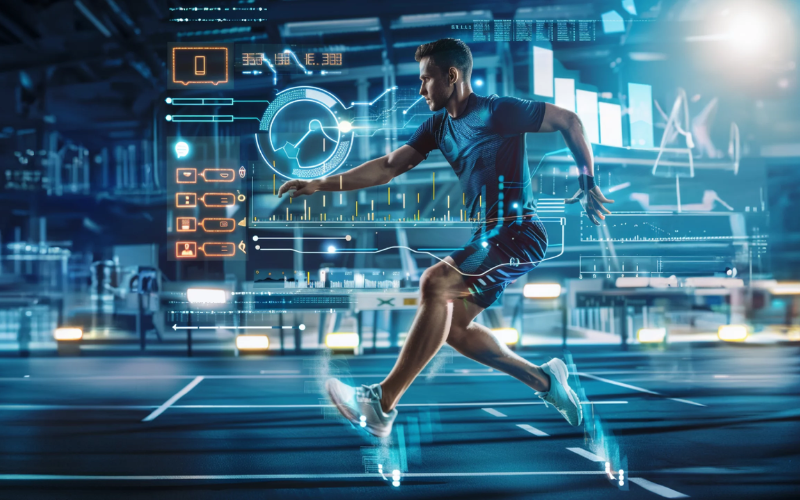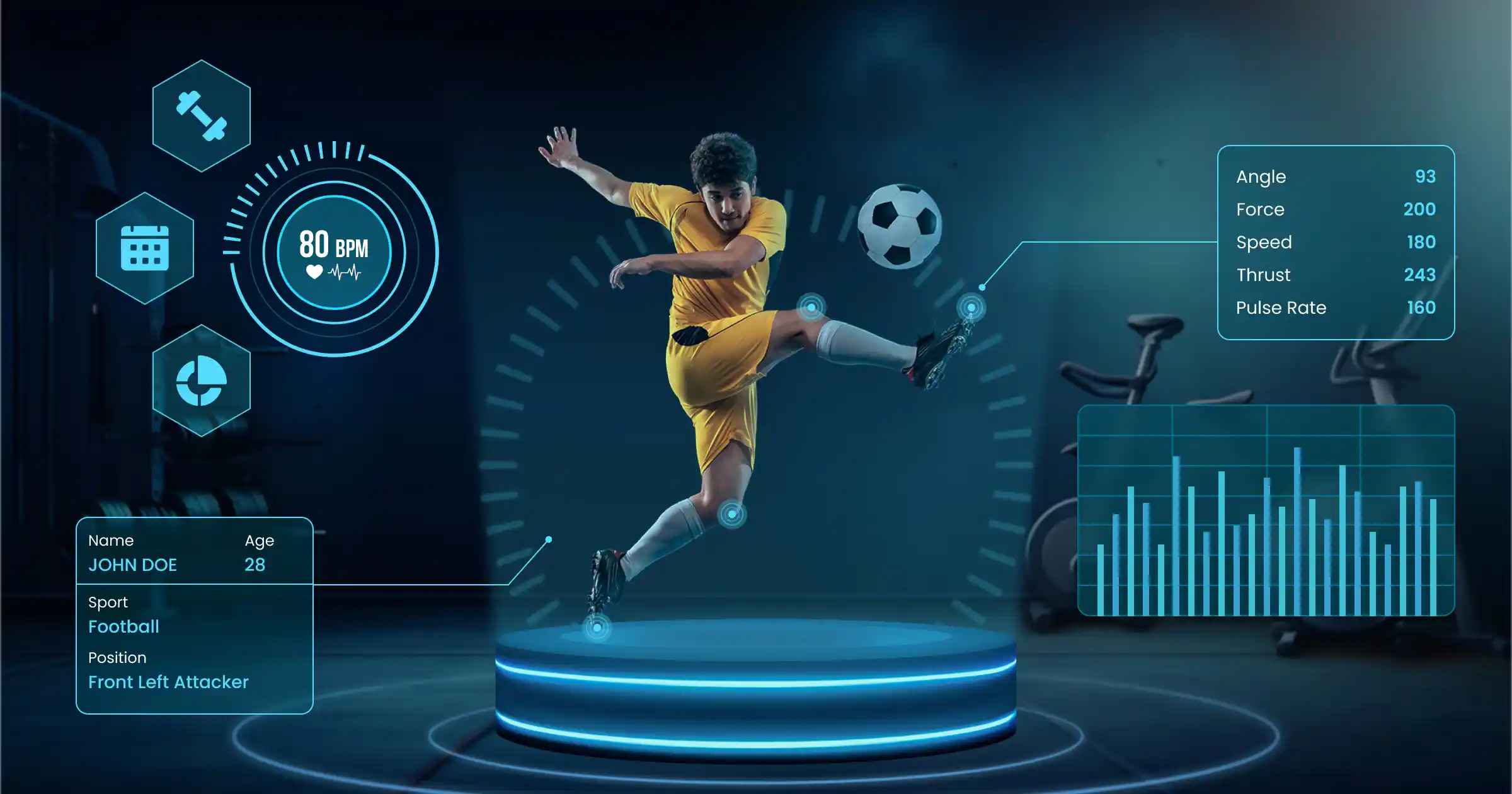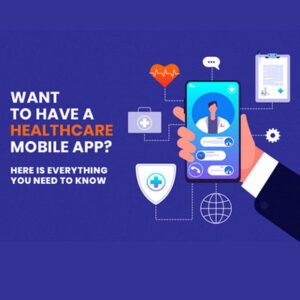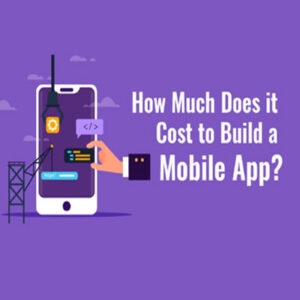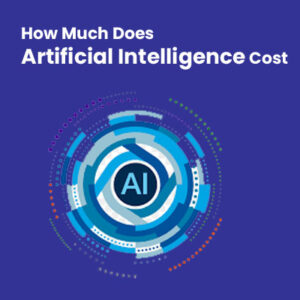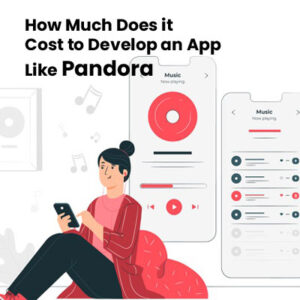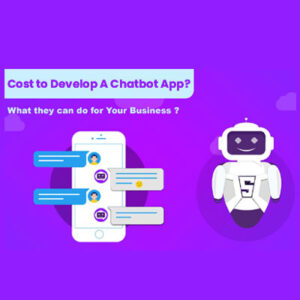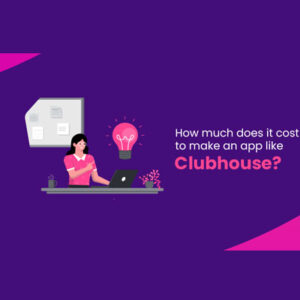AI in Sports: AI-Powered Real-Time Sports Analytics, Benefits, Use Cases & Future Trends
AI in Sports: AI-Powered Real-Time Sports Analytics, Benefits, Use Cases & Future Trends
Sports have traditionally been a test of strategy, skill, and pace. But nowadays, with the digitalized era, the ground is no longer the racing track, playground, or court. It has shifted to the wall of information, and Artificial Intelligence (AI) is at the forefront in redefining the game to play, coach, rule, and even watch for the fans. Real-time sports analytics based on AI is revolutionizing the players’ practice, teams’ performance, and spectators’ experience.
From monitoring slight movement on the field to providing real-time commentary to commentators, AI sports analytics is the new normal fast. This article explores how the technology is assisting, being utilized, and going to become in the future.
The Rise of AI in Sports Analytics
In fact, sports analytics was once a time-consuming process of data collection. Coaches would go to grounds, keep maintaining manual notes, and dig through spreadsheets to analyze performance. It worked, but it took an enormous amount of time and had few uses.
All of it changed with the revolution of AI and machine learning. Sophisticated sensors, computer vision, and predictive analytics monitor millions of data points in real-time, including players’ biometrics and movements, formation of players, and strategy of players’ opponents.
The global sports analytics market will be valued at more than $22 billion in 2030, according to industry reports, with real-time AI insights being at the forefront. It is fueled by requirements for accuracy, faster decision-making, and an activated fan base.
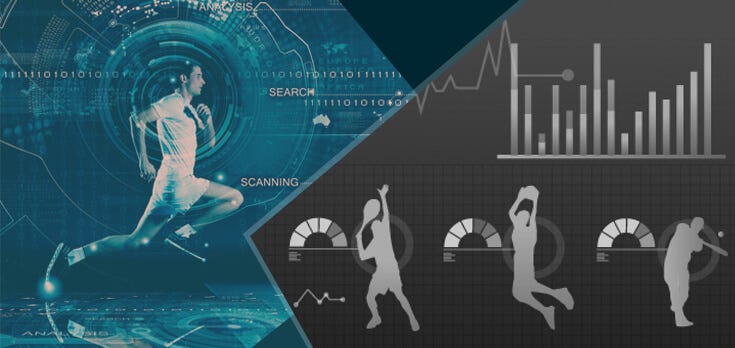
Benefits of AI-Powered Real-Time Sports Analytics
- Enhanced Performance Monitoring: Real performance statistics such as speed, acceleration, and heart rate are continuously tracked by using AI. Players’ fitness is tested in real time by coaches, and training schedules are accordingly adjusted. It gets the performance of players to the optimal level without putting them under burnout.
- Injury Prevention & Recovery: Real-time monitoring tracks muscle and joint tension, which also gives teams advance indications of impending risk of injury. AI can even utilize its capacity to rehabilitate injured players such that the rehabilitation process can be tracked and known how to pick up playing the game again.
- Tactical Advantage: AI also monitors the opponents’ actions, makes predictions about their strategies in gaming, and finds loopholes. Computer vision software, for instance, will recognize players’ movement patterns and give in-game coaching commentary in real time so coaches can react accordingly as a game is being played.
- Improved Fan Engagement: Fans are no longer supporters. With AI-driven apps and broadcast streams, supporters get live stats, game forecasts, and interactive content like AR replays. Therefore, action and interaction occur.
- Smarter Recruitment & Inspection: Inspection can be made smart with AI. Instead of relying on instincts, clubs can compare players based on actual performance, past trends, and projected trends.
- Operational Efficiency: From gate ticketing to game attendance at the gate on stadium campuses, AI streamlines sports operations. Predictive analytics through real-time data can even predict traffic movement, concession sales, and even arena energy consumption.
Real-World Use Cases of AI Sports Analytics
- Player Tracking & Wearable Devices: GPS and biometric wearables are feedback-delivery wearables, monitoring a player’s performance in real time. In a football match, for instance, AI-powered wearables monitor repeated sprints and distance traveled and offer substitution suggestions as an ongoing game is being played.
- Computer Vision for Game Analysis: AI cameras are able to recognize the players’ location, movement of the ball, and referee signals. AI SportVU cameras are even employed by the NBA, for example, to chart out everything that occurs in court so that coaches and analysts have a better top-level view of game strategies.
- Injury Risk Prediction: Catapult Sports and Kitman Labs are just two companies applying AI to sample the training and match data and then predict the chances of injury. It is also helping with workload management and recovery plans.
- Broadcast Enhancements: Apps send out live highlights, commentaries, and real-time replays using AIs. The speed of a player, attempted pass, or scoring threat is shown on screen when watching a live match, making the game more enjoyable.
- Esports & Virtual Competitions: AI analytics is not only business though. AI sports analytics delivers real-time analysis that affects team strategy, and television viewing experiences for fans are enriched with real-time performance data.
- Fan Personalization & Engagement: AI apps sending personalized information about the game, fantasy advice, and even sports gambling. That interaction makes the audience more immersed and creates additional revenues.
- Referee Assistance & Fair Play: Technology like VAR in football or Hawk-Eye in tennis aids in fairer decisions. Technology regulates live television broadcasts and helps in fair decisions by umpires.
Case Studies: AI in Action
A few real-time instances:
- Liverpool FC: Leverages AI data analysis to promote the performance of its players and scouting, thus becoming a timeless success story across centuries in contemporary times.
- IBM Watson & Wimbledon: IBM Watson AI scans tens of thousands of hours of tennis video and generates highlight reels in minutes, providing fans with live, real-time commentary of a match.
- NBA Teams: Leverage Second Spectrum, a computer vision-based tracking system, for game analysis, defensive scheming, and player efficiency.
Future Trends in AI-Powered Real-Time Sports Analytics
- Integration of Generative AI: Game plan models will be developed by Generative AI that would be capable of conducting “what-if” simulations. The strategies would be simulated virtually by the teams without even implementing them on the field.
- Immersive Fan Experiences (AR & VR): Then, fans would be in a position to view live analytics on the game being watched, i.e., live readings of the players’ tiredness or chances of shooting.
- Hyper-Personalized Content: Self-owned feed with AI: strategic analysis, someone else selects replays of his/her favorite player, and third, perhaps, live game tips.
- AI Refereeing & Autonomous Decisions: Apart from assisting referees, AI will soon independently perform refereeing duties with minimal human involvement and make improved decisions with no biases.
- Integration with Smart Stadiums: Future Stadia will use AI to manage everything from fan traffic patterns to ticketing in real-time, all in the name of making the best fan experience.
- Cross-Sport Data Models: Cross-sport tracking, where data from a specific sport (such as soccer endurance) will inform an action in another (such as basketball conditioning), will be facilitated by AI.
- Mental Health & Cognitive Analytics: AI has occupied psychology, tracking brainwave activity, stress response, and decision time to complement the mental well-being and resilience of athletes.
Key Challenges & Considerations of AI Adoption
Addressing these issues will ensure that AI enhances rather than replaces the human. Sport associations possess huge potential but are confronted with issues such as:
- Data Privacy: The health and biometric data of players must be maintained confidentially.
- Bias in Algorithms: Partial models trained can have adverse effects on scouting or recruitment.
- Cost Barriers: Smaller clubs cannot invest in implementing sophisticated AI solutions.
- Over-Reliance on Technology: Human imagination and intuition are still a fundamental aspect of sport decision-making. These are challenges that must be met so the human element of sport is not replaced.
Conclusion
AI real-time sports analytics is not a trend but a revolution that will transform the future of sport. From optimizing the performance of players and preventing injuries to offering individuals off-the-shelf experiences, technology is revolutionizing every phase of the sports industry.
Sports in the next decade will not just be intelligent but also more inclusive, interactive, and accessible, all thanks to AI. Whether you’re a player, coach, business leader, or just a fan, sports analytics through AI will revolutionize how we play, watch, and adore the world’s best game.
Get in touch with USM for your next revolution with AI.
